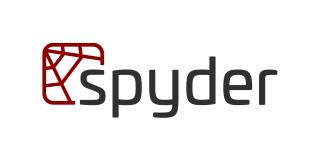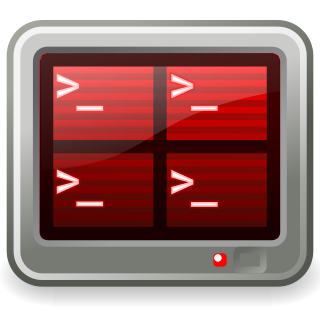
Tenés Empanadas Graciela (TEG) is a turn-based strategy game distributed by several popular Linux distributions. The idea for this free and open-source software program came from the board game TEG, which itself is based on the strategy board game Risk but differs in many aspects of the rules.
phpLDAPadmin is a web app for administering Lightweight Directory Access Protocol (LDAP) servers. It's written in the PHP programming language, and is licensed under the GNU General Public License. The application is available in 14 languages and supports UTF-8 encoded directory strings.
Technical variations of Linux distributions include support for different hardware devices and systems or software package configurations. Organizational differences may be motivated by historical reasons. Other criteria include security, including how quickly security upgrades are available; ease of package management; and number of packages available.

AutoKey is a free, open-source scripting application for Linux.
CPython is the reference implementation of the Python programming language. Written in C and Python, CPython is the default and most widely used implementation of the Python language.

SageMath is a computer algebra system (CAS) with features covering many aspects of mathematics, including algebra, combinatorics, graph theory, group theory, differentiable manifolds, numerical analysis, number theory, calculus and statistics.
aufs implements a union mount for Linux file systems. The name originally stood for AnotherUnionFS until version 2.

The Ren'Py Visual Novel Engine is a free software game engine which facilitates the creation of visual novels. Ren'Py is a portmanteau of ren'ai (恋愛), the Japanese word for 'romantic love', a common element of games made using Ren'Py; and Python, the programming language that Ren'Py runs on.

The TurnKey Linux Virtual Appliance Library is a free open-source software project which develops a range of Debian-based pre-packaged server software appliances. Turnkey appliances can be deployed as a virtual machine, in cloud computing services such as Amazon Web Services or installed in physical computers.

Kiwix is a free and open-source offline web browser created by Emmanuel Engelhart and Renaud Gaudin in 2007. It was first launched to allow offline access to Wikipedia, but has since expanded to include other projects from the Wikimedia Foundation, public domain texts from Project Gutenberg, many of the Stack Exchange sites, and many other resources. Available in more than 100 languages, Kiwix has been included in several high-profile projects, from smuggling operations in North Korea to Google Impact Challenge's recipient Bibliothèques Sans Frontières.

Spyder is an open-source cross-platform integrated development environment (IDE) for scientific programming in the Python language. Spyder integrates with a number of prominent packages in the scientific Python stack, including NumPy, SciPy, Matplotlib, pandas, IPython, SymPy and Cython, as well as other open-source software. It is released under the MIT license.

Zathura is a free, plugin-based document viewer. Plugins are available for PDF, PostScript and DjVu. It was written to be lightweight and controlled with vi-like keybindings. Zathura's customizability makes it well-liked by many Linux users.

GNOME SoundConverter is an unofficial GNOME-based free and open-source transcoder for digital audio files. It uses GStreamer for input and output files. It has multi threaded design and can also extract the audio from video files.
LibRaw is a free and open-source software library for reading raw files from digital cameras. It supports virtually all raw formats. It is based on the source code of dcraw, with modifications, and "is intended for embedding in raw converters, data analyzers, and other programs using raw files as the initial data."

ROCm is an Advanced Micro Devices (AMD) software stack for graphics processing unit (GPU) programming. ROCm spans several domains: general-purpose computing on graphics processing units (GPGPU), high performance computing (HPC), heterogeneous computing. It offers several programming models: HIP, OpenMP, and OpenCL.

Lector is a free e-book reading application for desktop Linux systems that also has basic collection management features.

Foliate is a free and open-source program for reading e-books in Linux. In English, foliate is an adjective meaning to be shaped like a leaf, from the Latin foliatus, meaning leafy.

GNOME Terminator is a free and open-source terminal emulator for Linux programmed in Python, licensed under GPL-2.0-only. The goal of the project is to produce a useful tool for arranging terminals. It is inspired by programs such as gnome-multi-term, QuadKonsole, etc. In that the main focus is arranging terminals in grids. Terminator packages exist for Arch, Debian/Ubuntu, Fedora, OpenSUSE, Gentoo, Snap, FreeBSD, OpenBSD. In 2017 took second place in voting at opensource.com, after Gnome Terminal.










